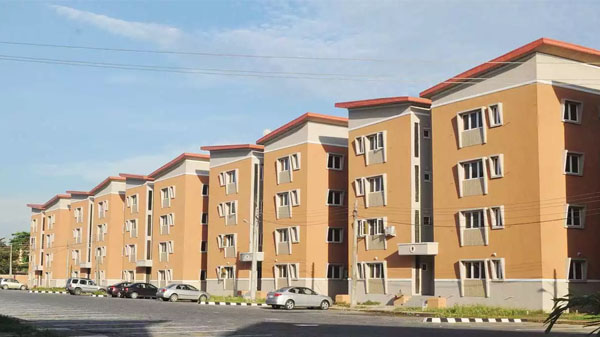(3 minutes read)
Professionals in the building and construction industry in Nigeria have raised concern over insecurity in the country, maintaining that it had hit their operations and businesses. They are finding it increasingly difficult to freely go about doing their activities in a safe and conducive environment
Professionals in the building and construction industry in Nigeria have raised concern over insecurity in the country, maintaining that it had hit their operations and businesses. They are finding it increasingly difficult to freely go about doing their activities in a safe and conducive environment.
Workers are demanding more money to work under insecure conditions. Developers of real estate say that they have to part with double wages since no one is coming forward to work in insecure places, where the construction works are going on. That is also the case with engineers and other supervisory staff.
The Nigerian Institute of Architects in a recent statement highlighted how uncertainty would have impacted the economy. It said that housing targets for Nigerians are not met, schools and hospitals for citizens are not built and the provision of much-needed roads and other transportation infrastructure is hampered.
Read Also:
https://trendsnafrica.com/nigerias-nnpc-to-end-dispute-with-oil-majors-upon-extending-contracts/
https://trendsnafrica.com/mtn-nigeria-starts-conducting-trials-for-rollout-of-5g/
https://trendsnafrica.com/nigeria-bans-foreign-models-and-voiceover-artists/
Some Architects are calling on the authority to help provide security for the sector. They say that some criminals use the project site as their hideouts, scaring people. Away. Many people including developers are scared about visiting sites. This also has affected the customer base of the developers.
Due to the insecurity problem affecting the construction sector in the country, business owners in the real estate sector say there has been a drastic fall in their customer base. No one would like to stay in a place, which has security challenges, they maintain.
Resumption of fighting between Ethiopia and Tigray poses fresh question mark on peace process
(Northern Africa) (3 minutes read)
The resumption of fighting in Ethiopia between the federal army and the Tigray rebels ending a five-month truce in the north of the country is a concern for the international community. The situation remains uncertain. There is no indication so far, whether efforts are underway to restore peace in the region, which many thought, would be returning to with the involvement of multiple agencies
The resumption of fighting in Ethiopia between the federal army and the Tigray rebels ending a five-month truce in the north of the country is a concern for the international community. The situation remains uncertain. There is no indication so far, whether efforts are underway to restore peace in the region, which many thought, would be returning to with the involvement of multiple agencies.
The resumption of fighting in Ethiopia between the federal army and the Tigray rebels ending a five-month truce in the north of the country is a concern for the international community. The situation remains uncertain. There is no indication so far, whether efforts are underway to restore peace in the region, which many thought, would be returning to with the involvement of multiple agencies.
The Ethiopian government and the Tigray rebel authorities are tight-lipped about their future plans nor coming out with any proposal to broker peace or break the ice.
The fighting, which broke out recently in areas of the Amhara and Afar regions around the southeastern tip of Tigray, appears to be localized. But the return of violence has the international community worried. The conflict will resume on a large scale and the slim hopes raised in June would be dashed.
Read Also:
https://trendsnafrica.com/ethiopian-airlines-bounces-back-after-the-pandemic/
https://trendsnafrica.com/somalia-ethiopian-ties-sour/
https://trendsnafrica.com/us-and-russian-envoys-in-ethiopia/
The 21-month conflict has left several thousand people dead. More than two million displaced and hundreds of thousands of Ethiopians living in near-starvation conditions. Since the end of June, the Ethiopian government and the Tigrayan rebels have repeatedly stated their willingness to enter into peace negotiations. But they continue to disagree on the modalities. And in recent days they have accused each other of preparing for war.
The federal government wants immediate talks without preconditions, under the auspices of the African Union (AU). The rebels are demanding the restoration of electricity, telecommunications and banking services to Tigray. They reject the mediation of AU High Representative Olusegun Obasanjo, whom they feel, is aligned with the federal government.
The war began in November 2020, when Prime Minister Abiy Ahmed sent the army into Tigray to dislodge regional authorities. He accused them of attacking military bases after months of challenging his authority. The Tigrayan rebels regained control of most of the region in a counteroffensive in mid-2021, in which they entered Amhara and Afar.





